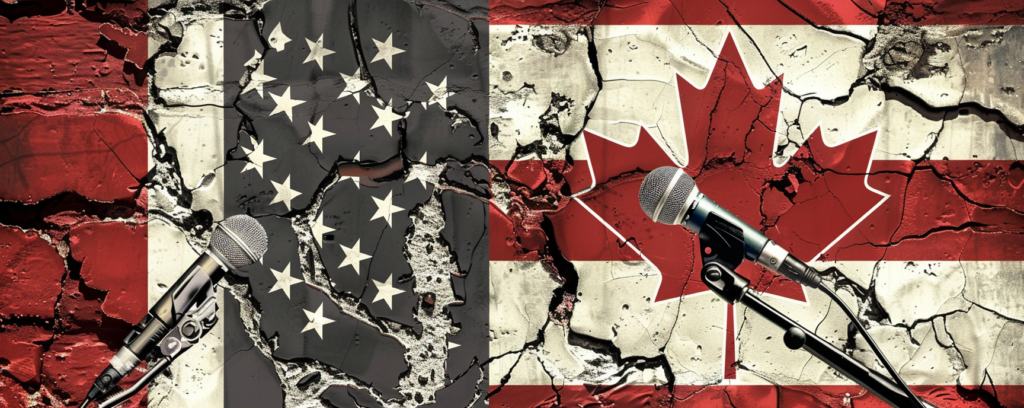[dc]F[/dc]reedom of speech is a fundamental right that is fiercely protected and debated in democratic societies. However, its interpretation and implementation can vary significantly from one country to another. This is particularly evident when comparing the free speech rights in Canada and the United States. While both nations value freedom of expression, their legal frameworks and societal norms reflect distinct approaches to balancing this right with other important societal interests.
Legal Foundations
In the United States, the First Amendment to the Constitution provides robust protection for free speech, stating that “Congress shall make no law… abridging the freedom of speech, or of the press.” This amendment is interpreted very broadly by the courts, particularly the Supreme Court, which has consistently upheld the principle that speech should be free from government interference except in the most extreme circumstances, such as incitement to violence or threats to national security [4].
Canada, on the other hand, enshrines freedom of expression in Section 2(b) of the Canadian Charter of Rights and Freedoms, part of the Constitution Act of 1982. However, this right is subject to limitations prescribed by law as can be demonstrably justified in a free and democratic society. This provision allows for greater regulation of speech compared to the United States, particularly in areas such as hate speech, defamation, and obscenity [1].
Hate Speech and Offensive Speech
One of the most notable differences between the two countries is their treatment of hate speech. In the United States, hate speech is generally protected under the First Amendment, unless it directly incites violence or constitutes a true threat. The Supreme Court has repeatedly ruled that offensive speech, including hate speech, must be protected to ensure a robust and open public discourse.
In contrast, Canada has stringent hate speech laws. The Canadian Human Rights Act and the Criminal Code both contain provisions that prohibit the dissemination of hate speech. For example, Section 319 of the Criminal Code makes it an offense to publicly incite hatred against any identifiable group where such incitement is likely to lead to a breach of the peace. These laws reflect Canada’s commitment to balancing freedom of expression with the protection of vulnerable groups from harm [3].
Defamation and Libel
Defamation laws also highlight the differences in free speech protections. The United States has a high threshold for proving defamation, particularly for public figures, who must show that the false statement was made with “actual malice” – that is, with knowledge of its falsity or reckless disregard for the truth. This standard, established in the landmark case New York Times Co. v. Sullivan, aims to protect robust debate on public issues.
In Canada, the standard for defamation is lower. Plaintiffs do not need to prove actual malice, and the burden of proof can be on the defendant to show that the statements made were true or constituted fair comment on a matter of public interest. This approach reflects a greater willingness to protect individuals’ reputations at the expense of some freedom of expression [2].
Balancing Rights and Social Interests
The differing approaches to free speech in Canada and the United States highlight broader cultural and legal philosophies. The American model prioritizes individual liberties and a marketplace of ideas where even offensive and harmful speech is seen as necessary for a vibrant democracy. Conversely, the Canadian model seeks to balance individual freedoms with the collective good, often placing greater emphasis on equality, dignity, and social harmony [5].
Conclusion
While both Canada and the United States champion the importance of free speech, their legal systems reflect distinct values and priorities. The American approach underscores maximalist protections for speech, fostering a culture of open and often contentious public debate. Meanwhile, Canada’s framework illustrates a more nuanced balance, seeking to protect both freedom of expression and the rights and dignity of all members of society. Understanding these differences offers valuable insights into the broader philosophical underpinnings of each nation’s approach to democracy and human rights.
Links
- michaelrobertcaditz.medium.com – Freedom of Speech: Contrasting Canadian and American Views
- quora.com – How does freedom of speech in Canada differ from the freedom of speech in the USA
- reddit.com – Freedom of speech differences between Canada and USA
- scholarship.law.duke.edu – Free Speech in the United States and Canada
- scholarship.law.columbia.edu – Free Speech in the United States and Canada
- en.wikipedia.org – Freedom of speech by country
